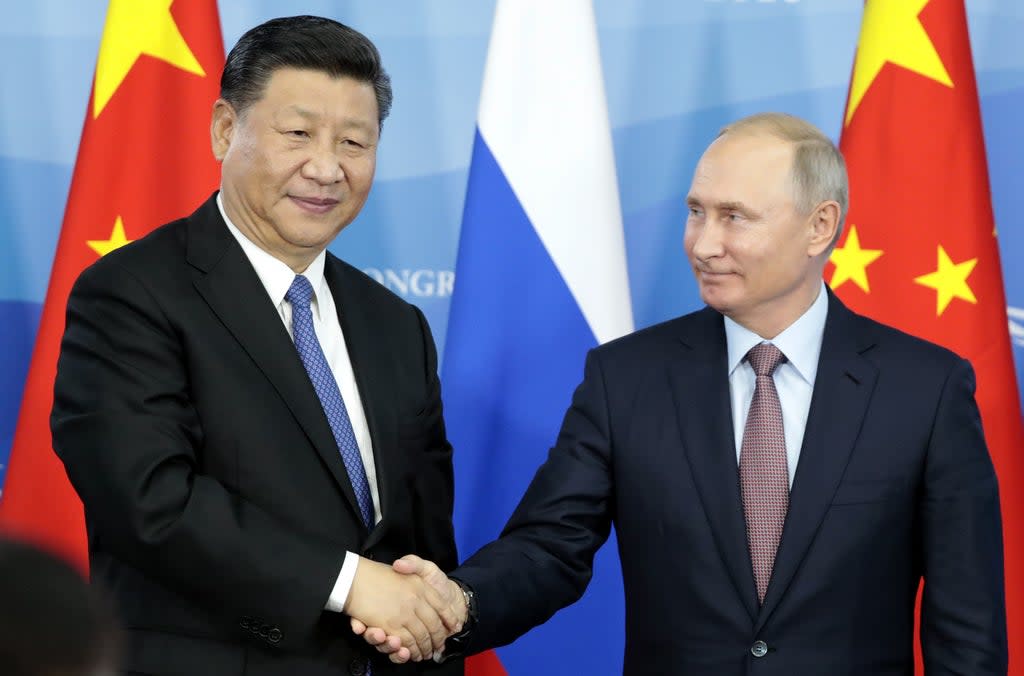Putin condemns ‘fundamentally wrong’ boycott of Beijing Olympics

- Oops!Something went wrong.Please try again later.
Russian president Vladimir Putin has called the planned diplomatic boycotts of the Beijing Winter Olympics by western nations “fundamentally wrong”, ahead of a visit to the Chinese capital on Friday.
A number of countries, including Britain, Canada and Denmark, are among nations refusing to send officials for Friday’s Olympics’ opening ceremony, in protest at human rights violations with regards to the treatment of Chinese Uyghurs.
As relations between Moscow and Beijing warm, and tensions grow over potential military conflict in Ukraine, Mr Putin criticised countries for trying “to politicise sports for their selfish interests have recently intensified”.
“This is fundamentally wrong and contrary to the very spirit and principles of the Olympic Charter,” the Russian leader said .
“The power and greatness of sports are that it brings people together, gives moments of triumph and pride for the country and delights with fair, just and uncompromising competition,” he added.
Mr Putin will meet his Chinese counterpart Xi Jinping on Friday, in a first meeting after the Covid-19 pandemic broke out. The two leaders are set to discuss key issues on the bilateral, regional and global agendas.
“It is symbolic that our meeting will take place during the Spring Festival - the Chinese Lunar New Year. After all, as the Chinese saying goes, ‘The whole year’s work depends on a good start in spring’,” Mr Putin said in a lengthy statement published by Xinhua.
The two are also expected to sit down for one-on-one talks over lunch ahead of the opening ceremony of the Winter Olympics.
Mr Putin said that relevant international topics will be an important part of his foreign visit, adding that the coordination on foreign policy front between the two is “based on close and coinciding approaches to solving global and regional issues”.
“Our countries play an important stabilising role in today’s challenging international environment, promoting greater democracy in the system of international relations to make it more equitable and inclusive,” he said.
Experts have called Mr Putin’s public support for China as a “further promotion” of their relationship.
“China and Russia have increasingly found common cause over what they believe is a US disregard for their territorial and security concerns,” said Li Xin, director of the Institute of European and Asian Studies at Shanghai’s University of Political Science and Law.

